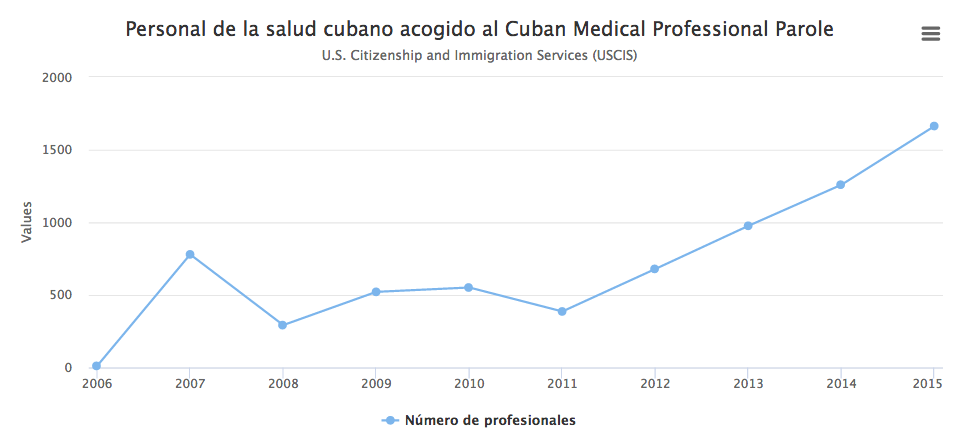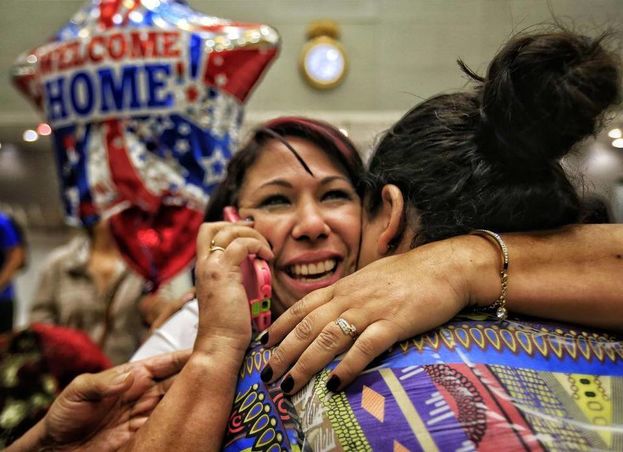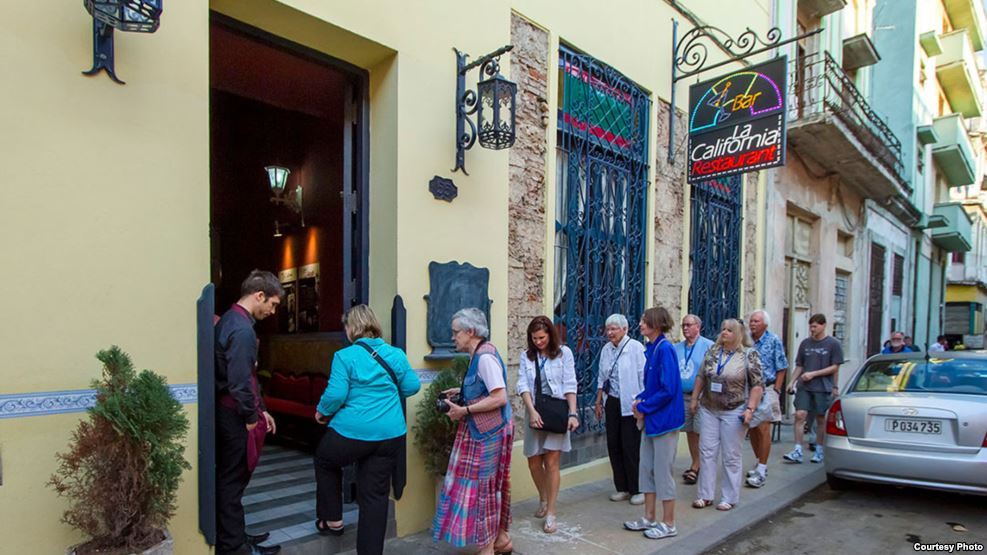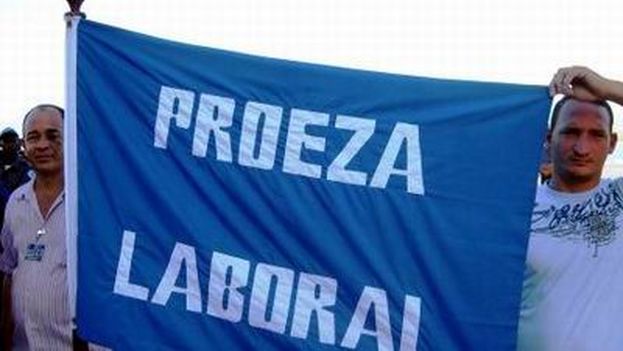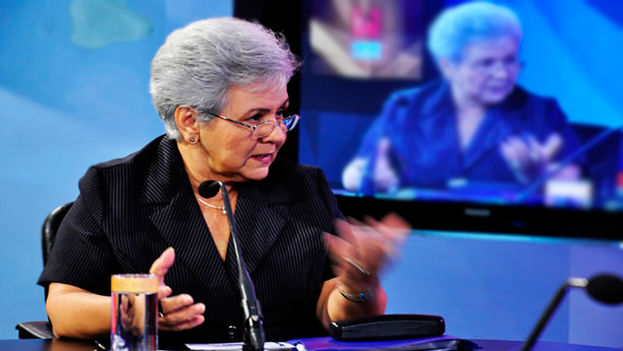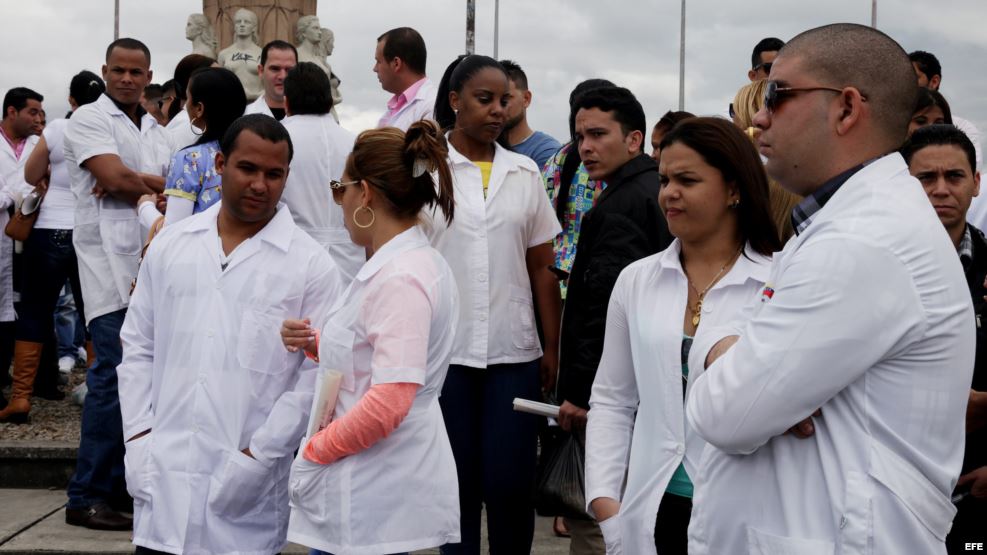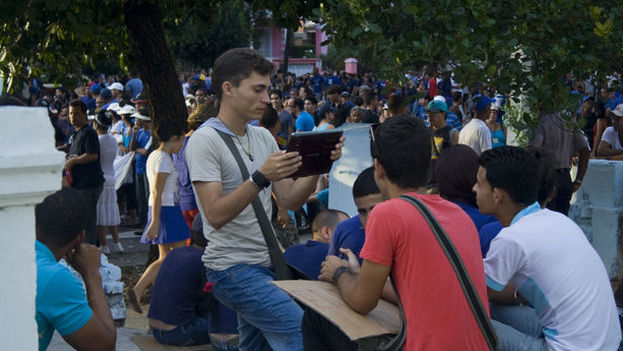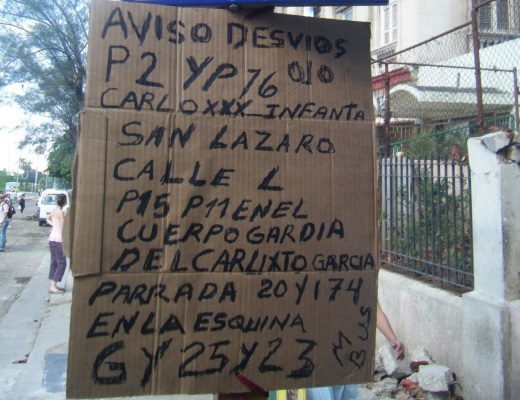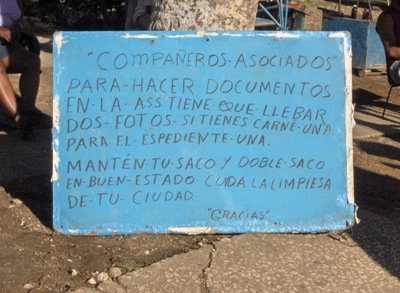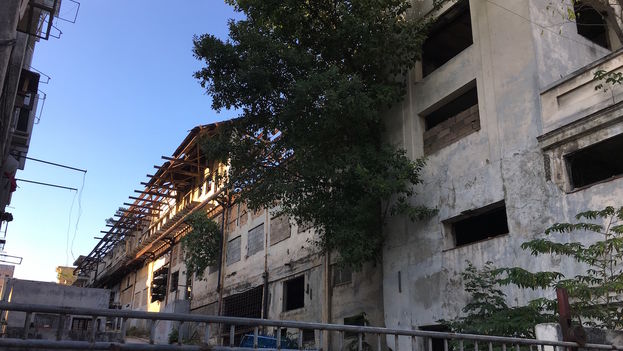At first glance, the proposal does not seem incongruous. The relationship between journalism and workers in the struggle for the exercise of labor rights in Cuba had its beginnings as far back as the second half of the nineteenth century, when the first trade union periodicals of the region were founded in Cuba – La Aurora and El Artesano – (Castellanos, 2002), an indication of both the worker’s recognition of the importance of the press and the timely proficiency they developed in union organization.
On the other hand, labor rights of domestic workers is one of the most recurrent and polarized issues of current official and independent Cuban journalism, though from two opposite ends. Contrary to the official monopoly of the press, in charge of praising the supposed guarantees of the State-Party-Government labor rights – though the new Labor Code does not even recognize such universal achievements as the right to strike, free recruitment and free association – the independent, press denounces the constant violations of all rights, including the most basic one: earning a deserved living wage. continue reading
Numerous independent journalists have addressed the issue of labor rights. Among them are the articles of historical analysis on the Cuban trade union movement, its achievements and errors, developed by the researcher Dimas Castellanos, some of which are cited here.
However, while the independent journalism sector has had the most sustained growth within the Cuban pro-democratic civil society in the last decade, its scope and real possibilities should not be overestimated. Much less can we hope that the press works the miracle of transforming society separate from the human beings who compose it.
The demand for labor rights is the responsibility, first and foremost, of the workers themselves within the extent of their groups
Journalism can support and complement the actions of individuals in their struggle for the full exercise of their most legitimate rights, but it cannot assume the functions of the institutions that those same individuals must create. Neither is it capable of changing reality all on its own. Thus, just as the triumphalist discourse of the official press does not turn into practice the rights it touts as “conquests of the Revolution,” neither is the independent press able to function as an intangible union, apart from the collective workers.
Unions, as organizations created to defend workers’ interests from employers (State, managers, companies), cannot be replaced by the press or, as in the case of Cuba, by the State. It is worth noting that nor is it the role of the (marginal) political parties of the opposition is not to assume such a demanding mission, especially considering that, under the Castro regime, opponents don’t usually have any labor ties nor have they have successfully influenced large sectors of the population, and even less so in workers’ State or private labor collectives.
In other words, the demand for labor rights is the responsibility, first and foremost, of the workers themselves within the extent of their groups, as subjects with the capacity to organize spontaneously and autonomously in defense of their interests as a group, developing a strong trade union movement capable of dealing with the powers that restrain those rights. It is the essential premise for the press – in this case, the independent press – to expand, thus increasing the effect of the workers’ labor demands or for the opposition to rely on trade union movements.
The official policy of manipulating the different social organizations has abolished the possibility of the existence of true trade unionism in Cuba
The working social base is so significant in mobilizing changes that a prominent union leader who counts on its support could become a political leader, such as the well-known case of Lech Walesa, or the well-known union leaders of the Latin American left, Lula Da Silva and Evo Morales, who eventually reached the presidency of their respective countries. But the inverse does not take place: political leaders do not usually become trade union leaders.
In fact, the powerful Solidarity trade union, with its effectiveness in overthrowing the puppet government of Moscow in Poland and putting an end to the so-called “real socialism” in that country, is an essential reference point when we are talking about which path the Cuban transition should follow: A great working organization with strong leadership, able to face and bend the Power.
Regrettably, such practice is not possible in Cuba, where sufficiently strong or autonomously organized labor groups in key positions in the economy do not exist, where the relatively better paid jobs are in the hands of joint venture foreign capital companies and in those of local, dominant military caste where, in addition, the deep national and civic feeling characteristic of the Polish peoples has never existed.
This leads directly to the historical fragility of the civil society in Cuba, demolished completely, especially in the 60 years after the arrival of the Castros to power, and hijacked by the leaders of the Revolution to put it at their service, subordinating it to the ideology of the Cuban Communist Party (PCC).
The official policy of manipulating the different social organizations, which operated autonomously and were self-financed before 1959, has abolished the possibility of the existence of true trade unionism in Cuba, whose dependence on the political will of the Government is equally evident, since numerous calls for plenary meetings and “workers” congresses stem from the Political Bureau of the PCC and not from so-called trade union organizations, and the workers’ laws and “rights” are also stipulated by the political power.
In November 1961, the loss of autonomy of trade unionism was enshrined, when delegates renounced almost all the historical achievements of the labor movement
But even though political manipulation of Cuban trade unionism became absolute after the “revolutionary triumph,” pre-1959 alliances of some trade union leaders with political parties had already strongly undermined the trade union movement, detracting from its autonomy, undermining its foundations and fragmenting it into its structures.
This is how Castellanos summarizes it in one of his writings on the subject: “The subordination of trade union associations to political parties, which began in 1925, intensified in the 1940’s with the struggle between workers in the Authentic and Communist Parties for control of the labor movement. In 1952, when Eusebio Mujal, then General Secretary of the labor movement, after ordering the general strike against that year’s coup d’etat, ended up accepting an offer from Batista in exchange for preserving the rights acquired by the CTC*.” (Castellanos, 2013)
The death of Cuban trade syndicates was sealed in 1959, when the CTC was dissolved and replaced by the (CTC-R). The 10th Congress of the workers’ organization took place that year, and its Secretary General, David Salvador Manso, said during his speech that “workers had not attended the Congress to raise economic demands but to support the Revolution.” At the 11th Congress, held in November 1961, the loss of autonomy of trade unionism was enshrined, when delegates renounced almost all the historical achievements of the labor movement, among others, the 9 days of sick leave, the supplementary Christmas bonus, the 44-hour work week, the right to strike and a raise of 9.09%. The CTC became, in fact, a mechanism of government control of the workers. (Ibid)
Far from improving the situation, the exploitation of Cuban workers has diversified and consolidated since the arrival in Cuba of foreign-funded enterprises
Needless to say this has been maintained until now, with the aggravating fact that the Cuban autocratic regime has achieved the positive recognition of all the international organizations responsible for ensuring compliance with labor rights, which increases Cuban workers’ hopelessness.
In fact, far from improving the situation, the exploitation of Cuban workers has diversified and consolidated since the arrival in Cuba of foreign-funded enterprises – which employ Cuban workers indirectly, entirely through contracts signed with the State rather than with the workers themselves – and with the leasing of professionals, especially health workers, who are sent abroad under collaborative projects in countries allied to the Castro regime.
Raúl Castro’s rise to the head of the government, as successor to his brother, the so-called historic leader of the revolution, seemed to open a brief period of expectations, encouraged by a reformist speech followed by a set of measures meant to bend the extreme centralism in Cuba’s domestic economy.
Such measures allowed for the emergence of small sectors of private entrepreneurs, grouped under the generic name “self-employed,” which have faced a number of constraints – such as high taxation, harassment by corrupt inspectors, absence of wholesale markets to provide their businesses, among others – and initially constituted an opportunity to encourage autonomous venues that could eventually pave the way for the emergence of groups of workers organized in defense of their interests, independent of the State.
Private workers were quickly absorbed by the government’s political officials who run the sole Cuban workers pivotal labor shop. The self-employed also meekly accepted the official “unionization”
However, the private workers were quickly absorbed by the government’s political officials who run the sole Cuban workers pivotal labor shop. The self-employed also meekly accepted the official “unionization” that represents the interests of the boss: the tower of power.
Thus, though Cuba has been a signatory of the United Nations Economic, Social and Cultural Rights Covenants since 2008 – which recognize, among others, the right to work and the choice of employment – and the Civil and Political Rights Convenants – whose written text includes freedom of the Press, expression, association and assembly, which are also essential for the existence of trade syndicates – there are no real trade union organizations in the country or areas of freedom to make them possible. The Cuban government has not ratified the signatures of these Covenants, and United Nations officials responsible for ensuring compliance with their contents are often extremely complacent with the Cuban authorities.
A long road traveled and a longer one yet to go
In spite of the historical shortcomings of Cuban civil society, the reality is that labor movements demanding workers’ rights began relatively early in Cuba. The strength achieved by the workers during the Republican period, organized and grouped in unions, determined political transformations as important as Gerardo Machado’s departure from power after a powerful workers strike that paralyzed the country.
During the same period, collective bargaining was another struggle method that gave trade unions the ability to influence the enactment of laws based on workers’ demands. Politicians recognized in the working masses a social fiber so powerful that the governments of Grau San Martin, Carlos Mendieta, and Federico Laredo Bru promoted labor legislation that included such rights as the eight-hour day, labor striking, paid and maternity leave, and collective bargaining. (Decrees 276 and 798 of April of 1938). (Castellanos, 2002)
The 1976 Constitution reduced labor rights to six minimal articles, omitting almost all the gains of the trade union movement of previous periods
Later, the 1940 Constitution legally recognized the results of previous years’ union struggles by dedicating 27 articles of Title VI to the collective and individual rights of workers. These ranged from the minimum wage to pensions due to the death of the worker. Paradoxically, once the government “of the poor, with the poor and for the poor” came to power, not only were unions lost by a stroke of the pen and absorbed by the new dictatorship of a supposed military “proletariat”, but Chapter VI of the 1976 Constitution reduced labor rights to six minimal articles, omitting almost all the gains of the trade union movement of the previous periods, endorsed in the Constitutions of 1901 and 1940.
Currently, the Cuban socio-political and economic situation is extremely complex. Not only because an economic crisis has taken root permanently, but there has been a wave of layoffs and no salaries in Cuba are sufficient to even acquire basic foodstuffs. Social actors capable of reversing that scenario cannot be found in our country.
The opposition has proposed a few attempts for independent unions. However, such proposals have not made progress, not only because of the repression that is exerted against any manifestation of dissidence within Cuba, but because these alternatives have no social bases or real support. In fact, since they are marginalized by the system, Cuban opponents do not usually have any labor ties – if they had held a state job they would generally have been fired — so they have no chance of representing Cuban workers.
The constant Cuban exodus, mainly composed of working age individuals, is another factor that contributes to the weakening of the work force
The constant Cuban exodus, mainly composed of working age individuals, is another factor that contributes to the weakening of the work force, the result of the system itself but one whose solution is already beyond the reach of a government to which any deep change might cost the loss of its power.
So far, it does not seem that the vicious circle that keeps Cuban workers and the whole of society in a motionless state will be broken in the short term. The road to recovery will be long and tortuous, and will only begin when the omnipotent power that has hijacked the nation for almost 60 years disappears. Because without rights, there will be no unions, and without unions there will be no force capable of legitimately representing the interests of that endangered species that was once called “the Cuban workers.”
*(CTC): The Central Union of Cuban Workers [Central de Trabajadores de Cuba] originated as the Confederation of Cuban Workers [Confederación de Trabajadores de Cuba] in 1939. The original leaders of the organization were forced to flee after Castro’s seizure of power in 1959.
Translated by Norma Whiting
![]() 14ymedio, Mario J. Penton, Miami, 6 February 2017 – Two dozen health professionals who abandoned their Cuban medical missions abroad arrived this afternoon at the Miami International Airport from Colombia. This is the first group to arrive in the United States after the end of the Cuban Medical Professional Parole (CMPP).
14ymedio, Mario J. Penton, Miami, 6 February 2017 – Two dozen health professionals who abandoned their Cuban medical missions abroad arrived this afternoon at the Miami International Airport from Colombia. This is the first group to arrive in the United States after the end of the Cuban Medical Professional Parole (CMPP).